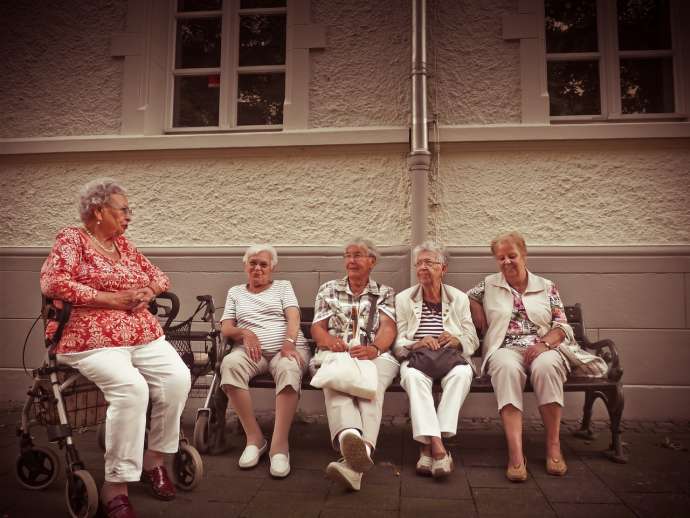STA, 1 January 2021 - Slovenian pensioners are looking at higher pensions in the new year, as a pension rise, expected to stand at some 4%, is to be introduced in February after one-off bonuses for low-income pensioners are paid in January.
Under the latest Covid relief package, adopted in late December, pensioners with pensions under EUR 732 a month will receive one-off bonus of either EUR 130, 230 or 300 by the end of January.
Solidarity allowance, totalling EUR 150, will be also paid out to the disabled and war veterans by the end of March.
In line with the relevant law, pensions will be indexed in February, when the adjusted amount will be paid out, the ZPIZ public pension and disability fund has said, adding that the January adjustment will also be made.
It is still up in the air whether there will be a pension rise to fully eliminate the shortfall that pensioners suffered as a result of austerity measures during the financial crisis.
The Pensioners' Party (DeSUS) has proposed a 3.5% pension rise to compensate for this, but even if such indexation takes place, the amount is open to question. The last unscheduled indexation occurred in December 2020 with the indexing rate at 2%.
The annual pension bonus will be paid with June pensions and will range from EUR 140 to EUR 450. Those with pensions of up to EUR 570 will receive the highest amount.
Disability allowance bonuses will meanwhile stand between EUR 140 and EUR 250. People with disabilities who receive the disability allowance of up to EUR 805 will get the highest sum.
In 2022, persons with disabilities will benefit from stepped-up social inclusion activities starting from 30 June. Moreover, attendance allowance will increase by 2.5% in March.
There will be some new rules for retirement in 2022. For men, the pension for 40 years of pensionable service will be calculated at 61.5% of the pensionable age, an increase of two percentage points compared to 2021.
Moreover, the age required to be eligible for a widow's pension will be 58, an increase of half a year compared to 2021.
The new year will also see the start of implementation of the long-term care act that will enter into effect on 18 January.
The ZZZS health insurance institute will be kept busy in 2022 as the statutory provider of compulsory long-term care insurance. The institution must be ready for the new duties by the end of the year at the latest.
The benefits provided by the act will be gradually phased in by 2024, starting with the right to long-term institutional care and to a caregiver on 1 January 2023.
The new system will be financed from the budget for the first two years, whereas in 2025 a special law on compulsory long-term care insurance is planned to be enacted.







